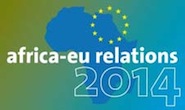Last week, the European Commission’s published a new policy proposal titled ‘the roots of democracy and sustainable development; Europe’s engagement with civil society in external relations’. aiming to carve out a new and more strategic engagement with civil society organizations (CSOs). This proposal, or ‘Communication’ goes a long way in recognizing and specifically emphasizing the inherent value of a strong civil society ‘as an asset in itself’, over and above its instrumental contributions in bringing about development outcomes. It refreshes the last policy proposal on this matter from 2002, and was informed through a detailed ‘structured ...
Agriculture plays a key role in the economic and social development of Central African countries. The agricultural sector employs about 50% of the active population and feeds many more. Nevertheless, the food security situation has been worsening over the last two decades. Fast population growth, political and military crises, low agricultural productivity as well as many Central African governments’ focus on extraction of natural resources such as oil, rather than on food production and trade, are reasons behind this trend. To rise up to the food security challenge, the 10 members of the Economic Community of ...
++ GUEST CONTRIBUTION ++ As EU High Representative Catherine Ashton visits Cairo this week, both Europe and Egypt will think about how they can mould a new relationship. With a newly elected Egyptian President the EU must in turn create a new framework for cooperation with the country. The last thing that Egyptians want is to be told what to do by the EU. As the Arab world’s most populous state stumbles on its path towards democracy and Europe itself struggles economically, can the EU really establish a new and mutually beneficial relationship with a ...
Few would question the importance of civil society’s role in the events of the Arab Spring, especially in Tunisia and Egypt. Non-state actors were a catalyst for change, particularly as they were vocal in calling for more democratic participation, for government accountability and for a legal framework ensuring the respect of human rights. However, now that transitions away from authoritarian rule have been set in motion (to different degrees), in many instances Arab civil society faces the difficult task to put forward a new, enduring, development agenda. This is all but an easy quest, and ...
Fragility, as a concept that refers to weak institutional capacity, poor governance, political instability, and frequently conflict, has moved up the international agenda in recent years. As none of the ‘fragile states’ have reached any of the MDGs, these are typically the countries where developmental progress has shown persistent weakness or failure. In an interesting article on his aid on the edge of chaos blog, Ben Ramalingam refers to state fragility as a “wicked problem”, and explores how ideas from complexity theory can help identify new ways of approaching this difficult issue. To me, having worked ...
++ GUEST CONTRIBUTION ++ In response to the Arab Spring, the European Union (EU) promised to shift away from business as usual. It aims to put support for human rights and democracy at the centre of its co-operation policy with the Arab neighbourhood. In this regard, enabling civil society to function, to advocate for citizens’ priorities and rights and to hold governments and donors to account is pivotal. However, regional consultation on EU policies appears to have been either insufficient, without impact or unappealing. Furthermore, double standards in the past have undermined the EU’s credibility ...
This has been an intensive week for civil society organisations and local authorities from the North and the South: the 2nd Assises of Decentralised Cooperation for development meeting was held in Brussels and the closing sessions of the Structured Dialogue (SD) took place on top of it. The Assises of Decentralised Cooperation for development meeting consisted of five round tables dealing with issues related to the role of local and regional authorities in food security, achieving inclusive growth, promoting sustainable development and strengthening multi-level governance. A fifth roundtable aimed at linking this event with the ...
A 429-page book from the Southern Africa Trust about the legislative environment for civil society in 18 countries in Central, East and Southern Africa. This book emerged in response to the need to fully comprehend the public sphere in Africa and the regulatory environment under which civil society operates. It investigates relations that have developed between states and their citizens as well as interrogates the role that civil society formations have played in the democratisation and governance of Africa’s public sphere. You can also see an 11-minute interview with the book’s editor here.
The European Commission is conducting a “structured dialogue” process aimed at reaching a multi-stakeholder consensus on the main topics linked to increasing the effectiveness of the involvement of civil society and local authorities in EC development cooperation. This draft document, to be presented during the European Development Days conference on 7 December, provides a summary of the discussions and preliminary conclusions and recommendations arising from meetings held with stakeholders over the past nine months on complementarity and coherence within the aid effectiveness agenda and the roles and added-value of civil society organisations and local authorities. ...
A discussion note from the international civil society platform BetterAid for the High Level Forum on aid effectiveness process entitled “Making development cooperation just: Governance principles and pillars” calls for a new, more inclusive, international development cooperation approach and global governance institutions focused on development, rather than aid, effectiveness. These should cover international aid, trade, financial markets, foreign direct investment and debt and include binding mechanisms that enable implementation of international commitments. The European network of development NGOs, CONCORD also published a paper entitled “EU responsibilities for a just and sustainable world” calling for a ...

















